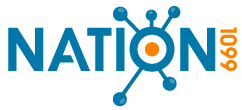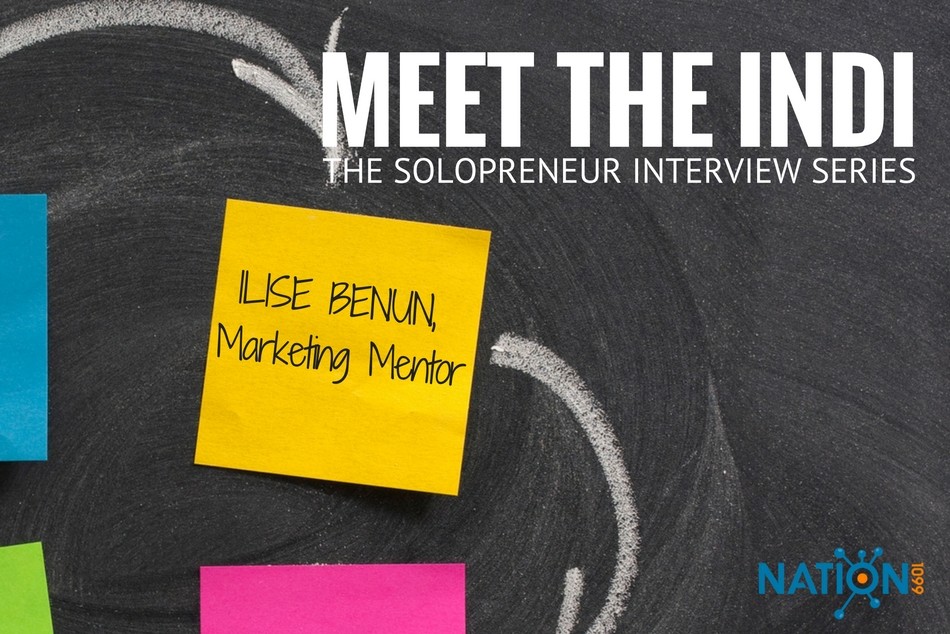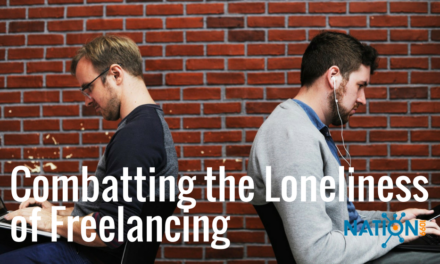Ilise Benun is the “Marketing Mentor” — a fitting title for someone who has carved out a bustling consulting career helping creative professionals find higher paying clients across gig economy.
In addition to being an active author and speaker who has held marketing workshops for several notable institutions and organizations like The Freelancer’s Union, RISD and Pratt, Benun coaches creative professionals on how to grow their businesses and better promote themselves.
You may also recognize her from the excellent HOW Design Live podcast, for which she serves as program partner. Across all of her work, Benun’s passion for solopreneurship and desire to help others always shines through.

For these reasons and many more, we’re excited for the opportunity to connect with her for an interview. Benun offered spirited answers and practical insights into the ways in which independent consultants can proactively grow their business and ultimately take better care of themselves in these head-spinning times.
You’ve been self-employed for over 25 years. What steered you in this direction?
I was fired from my second job out of college and I was so angry. I decided I was never working for anyone again.
So, it was not a conscious choice although I was raised in a family where I don’t think anyone had a full-time job. Everyone was self-employed so it was very natural to me to be self-employed. Looking back, I would say I am unemployable. Luckily, I knew it early on. I learned it very quickly.
So at that point, I looked around at all the people I knew in New York. Creative people seemed a little disorganized, and I was a little bit more organized, so I had the bright idea to be a professional organizer and help people with their piles of papers. I started doing that for $15 an hour.
What was the first big sign that mentoring could be a career?
I noticed that, with every single person, at the bottom of the pile was something that had to do with marketing and self-promotion that they were not doing. It was just incredibly consistent.
So, when we would get to that part in the pile, I would say, “Let’s send some information to that person who is asking for it,” or “Let’s get you a booth at that trade show or that art show where you’re interested in exhibiting your work.”
“Looking back, I would say I am unemployable. And so luckily, I knew it early on.”
I evolved my business in that direction, because that was clearly the need people had. To me, the whole point of marketing, and the way to make a business successful, is to figure out what the market needs and give it to them.
I was doing that not particularly consciously. It would be much easier now and I would know a lot more and hopefully wouldn’t take me quite as long to narrow my market, which I have done over the years. Now, I specialize in working with creative professionals.
You’ve collaborated with many companies and universities. How can consultants engage institutions and businesses to offer workshops in their fields?
The short answer is high quality content and persistence.
On the business side, everyone needs content, and there are more and more events both online and off — so all of us can create material and present it. Being able to present in real time, not necessarily live, but certainly in real time, is an important skill to develop.
Institutions are much trickier. They are not as easy to engage, they move very slowly and they require credentials I didn’t have. I realized early on that art schools were not providing the business education the creative people coming out of them needed. I tried to approach them, but they were not interested in what I had to say.
It’s taken me 15 years or so to develop the relationships with the schools I now have. But it was not easy and it took a lot of persistence. Also, something has changed on the institutional side where they realize more and more that they do need to be teaching these business skills. There’s a little bit more openness about it now too. That wasn’t the way it was before.
Where is the best place to start for freelancers looking to develop online courses. Is this a skill everyone should be learning?
No, absolutely not. This is not a skill everyone should be learning. I’m emphatic about this because I’m offended frankly by the idea that everyone has the ability to teach. I really don’t think that’s true. These online courses are just the latest bandwagon everybody is jumping on, and the people teaching how to create online courses are the ones making the money.
Of course, we all have talents and we all have our expertise but that doesn’t mean we can teach it, especially as a marketing tool. There are much easier marketing tools to use. Direct outreach is one that I teach and one of the most effective.
Isn’t it important to create some degree of passive income to increase revenue without radically increasing the workload?
From my experience, you have to build a list of people first, then create what they need (and will buy). Most people do it backward.
It seems the working world is in transition between the traditional 9-5 standard and more flexible forms of self employment, yet policy has not caught up in important areas like health insurance, taxation, and corporate policy.
More on this topic — The Future of Work Is the Future of Self: How the Work In Place Movement Is Supporting Remote Workers
To grow revenue as a freelancer, what should be the balance between big steady clients and finding new clients?
This is the magic formula: slow and steady slog toward higher quality and higher paying clients!
And as for a balance, I suggest half your monthly “nut” should be covered by stable work from regular clients (retainer-based or otherwise) and the other half by one-off projects, to keep the variety so many people seem to want.
What are the biggest changes for solopreneurs you see coming?
One of the biggest changes is that there is no such thing as job security anymore. There’s less and less loyalty on the part of employers and employees — and clients, for that matter.
So even if you have a job, you could lose it at any moment and that includes people who are self-employed who have one big client — what we call the “Gorilla Client.” That’s just like having a job although with a lot less stability.
I do think being self-employed is not easy and as you’ve said there are very few policies in place to support this new way of working. I’m sure you know the Freelancer’s Union is working on this and they are definitely making headway, but of course any change will be slow.
“This is the magic formula: slow and steady slog toward higher quality and higher paying clients!”
In the meantime, the self-employed must step up and take responsibility for ourselves. Stop being passive and treating our clients like our employers. We need to be the boss of our own businesses whether or not it’s just you. Stop taking whatever comes along, which gets glorified and called “word-of-mouth” — it’s really just taking whatever comes along.
Instead be more active. Take better care of ourselves and demand from our clients what we deserve, which is really just the basics of signed contracts and deposits up front. If we, as solopreneurs or freelancers, don’t require that from our clients, then they won’t give it to us.
As the ranks of solopreneurs and freelancers increase, so does the competition. How can people new to freelancing cut through the noise?
I would say specialize and focus. Focus on a particular market or a particular need you are best suited to serve, and focus on developing strong high quality relationships with high quality people. Learn how to qualify them.
Because, really, how many clients do you actually need? You don’t need a hundred, you don’t need a thousand, you just need a few really good ones to keep your pipeline full on an ongoing basis.
So think about how many you actually need and then go get them by showing those specific people in a very customized way why you are the perfect fit for them. Then stay in touch with them until it materializes into actual work.
Ilise offers a free marketing course that helps time-crunched solos put together a simple and comprehensive marketing plan to grow their brands. Check it out here.

Ben Shanbrom is a freelance writer, musician, and copy editor who works with artists and clients within his native New Haven scene and well beyond (ask him about tracking drums in the studio where Europe recorded “The Final Countdown”). Ben is a tried and true “coffee rings on his notepad” freelancer, and wouldn’t have it any other way.











